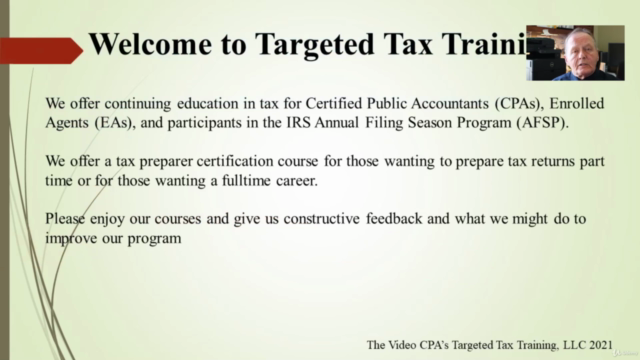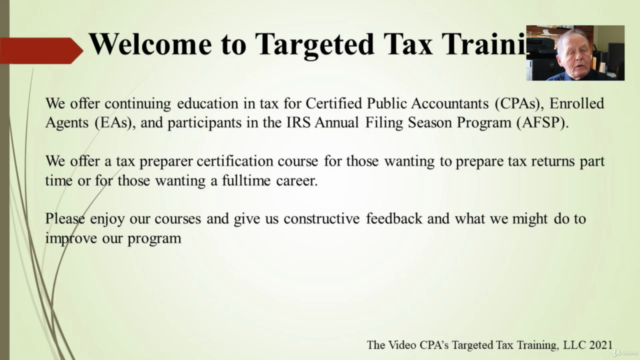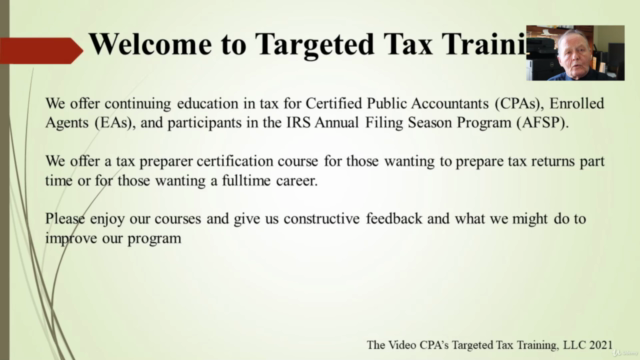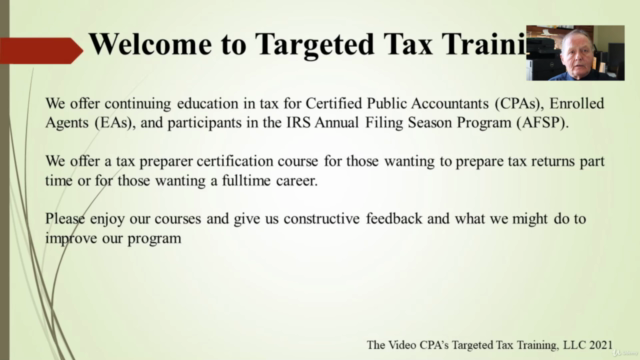Understanding Tax Depreciation

Why take this course?
🌟 Course Title: Understanding Tax Depreciation
🎓 Course Headline: Let's Depreciate Something!
Welcome to "Understanding Tax Depreciation"!
Depreciation, often shrouded in complexity and misunderstood by many, is a crucial aspect of tax preparation that can significantly impact your financial reports. As a business owner or an individual investor, grasping the concepts of depreciation is not just about compliance—it's about making informed decisions that can save you money.
Why Take This Course?
- Unraveling the Mystery: Learn what constitutes a depreciable asset and why it's crucial to spread the cost of these assets over their useful lives, instead of expensing them all at once.
- Mastering Depreciation Fundamentals: Understand the different methods of depreciation, the conventions used, and the estimated useful lives of various types of assets.
- Real-World Applications: Discover how to classify fixed assets effectively and manage their depreciation.
- Advanced Concepts: Dive into depreciation recapture, and learn how gains and losses are accounted for when assets are sold.
Course Goals:
- Classify Fixed Assets: Learn the criteria used to determine if an item is a fixed asset and how it should be classified.
- Depreciation Methods & Conventions: Explore the various depreciation methods (straight-line, declining balance, etc.) and conventions (half-year convention, etc.) available.
- Understand Useful Lives: Gain insights into the estimated useful lives of different types of assets and how this affects depreciation schedules.
- Depreciation Recapture & Asset Sales: Learn about the implications of depreciation recapture, as well as accounting for gains and losses when selling depreciable assets.
The Accounting Profession's Perspective:
The Internal Revenue Service (IRS) follows the matching principle, which is a fundamental concept in accounting that ensures expenses are matched with the revenue they help generate. Assets, being long-term investments, cannot be fully expensed at once; instead, their cost must be spread over the estimated number of years they will be beneficial to your business—typically known as the "useful life."
A Practical Example:
Imagine your company purchases a high-quality saw for $7,000 that is expected to last 7 years. According to tax depreciation principles, this saw won't be fully written off in the first year. Instead, it will be depreciated at $1,000 per year over its useful life. This approach aligns the expenses with the revenue produced by the saw, ensuring a more accurate representation of your company's financial health over time.
Key Takeaways:
- Understanding the Matching Principle: Learn why the IRS requires spreading out the cost of assets.
- Depreciation Strategies: Discover how to strategically depreciate assets to optimize your tax position.
- Encouraging U.S. Production: Recognize instances where the IRS allows for departures from the matching principle to encourage domestic production.
By the end of this course, you'll have a solid understanding of tax depreciation that will demystify this aspect of tax preparation and empower you to handle your financial affairs with confidence. 🧾🎉
Join Michael E Scott CPA, CMA, your knowledgeable guide, as he breaks down the complexities of tax depreciation into manageable chunks. Let's deprivation something together—in a way that will save you money and streamline your understanding of this critical financial function! Enroll now and transform your approach to tax depreciation.
Course Gallery




Loading charts...